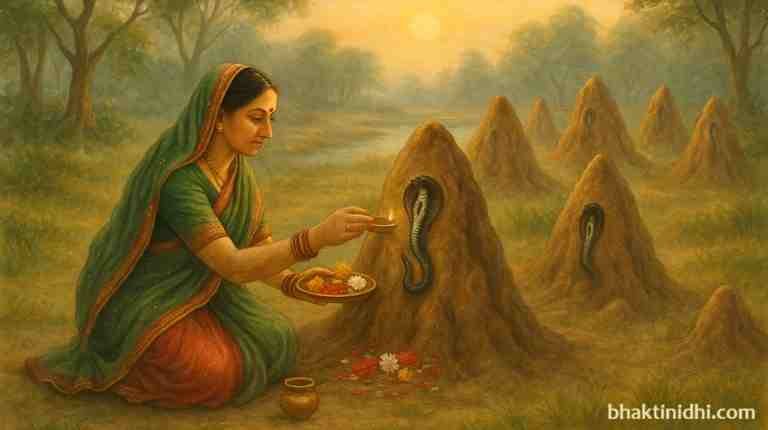Sheetala Ashtami (or Shitala Ashtami) is a festival dedicated to Goddess Sheetala Devi, who is revered as the goddess of healing, especially known for protecting people—particularly children—from diseases like smallpox, chickenpox, measles, and fevers, etc. Sheetala Ashtami is also called Basoda. This festival is more popular in the Northern Indian States such as Uttar Pradesh, Rajasthan, Gujarat, and parts of Madhya Pradesh.
Sheetala Ashtami (Basoda)
When is Sheetala Ashtami Celebrated?
It is observed on the eighth day (Ashtami) of the Krishna Paksha month of Chaitra (March–April), which usually falls a week after Holi. In some regions, it may be observed on Saptami (7th day) as well. In 2026, Sheetala Ashtami will be observed on March 11 (subject to lunar calendar adjustments).
Rituals & Traditions
Devotees don’t cook fresh food on the day of Sheetala Ashtami. As a custom, not even fire is lit or cooking stoves are switched on. On the day before the Ashtami, families cook food which is then consumed cold the next day. This is called “Basoda” (meaning “stale” or “previous day’s food”).
People visit Sheetamala Mata temples and/or pray at their homes early in the morning. Cold food including fruits, vegetables, curd rice, etc.. are offered to the Goddess. In some regions, Neem tree is worshipped on this day.
Some women observe fast on this day for the health and well-being of their children and family.
Significance of Sheetala Ashtami
This festival is rooted in ancient traditions where the deity is invoked to prevent or cure epidemics, especially smallpox. Sheetala Mata is associated with cleanliness and hygiene, and is believed to cool down fevers and skin diseases. She is often depicted riding a donkey, holding a broom, a winnowing fan, and a pot of healing water.
The practice of eating cold food is symbolic of the cooling, disease-soothing nature of the goddess. It is also a reminder of how seasonal transitions (like winter to summer) can affect health.






